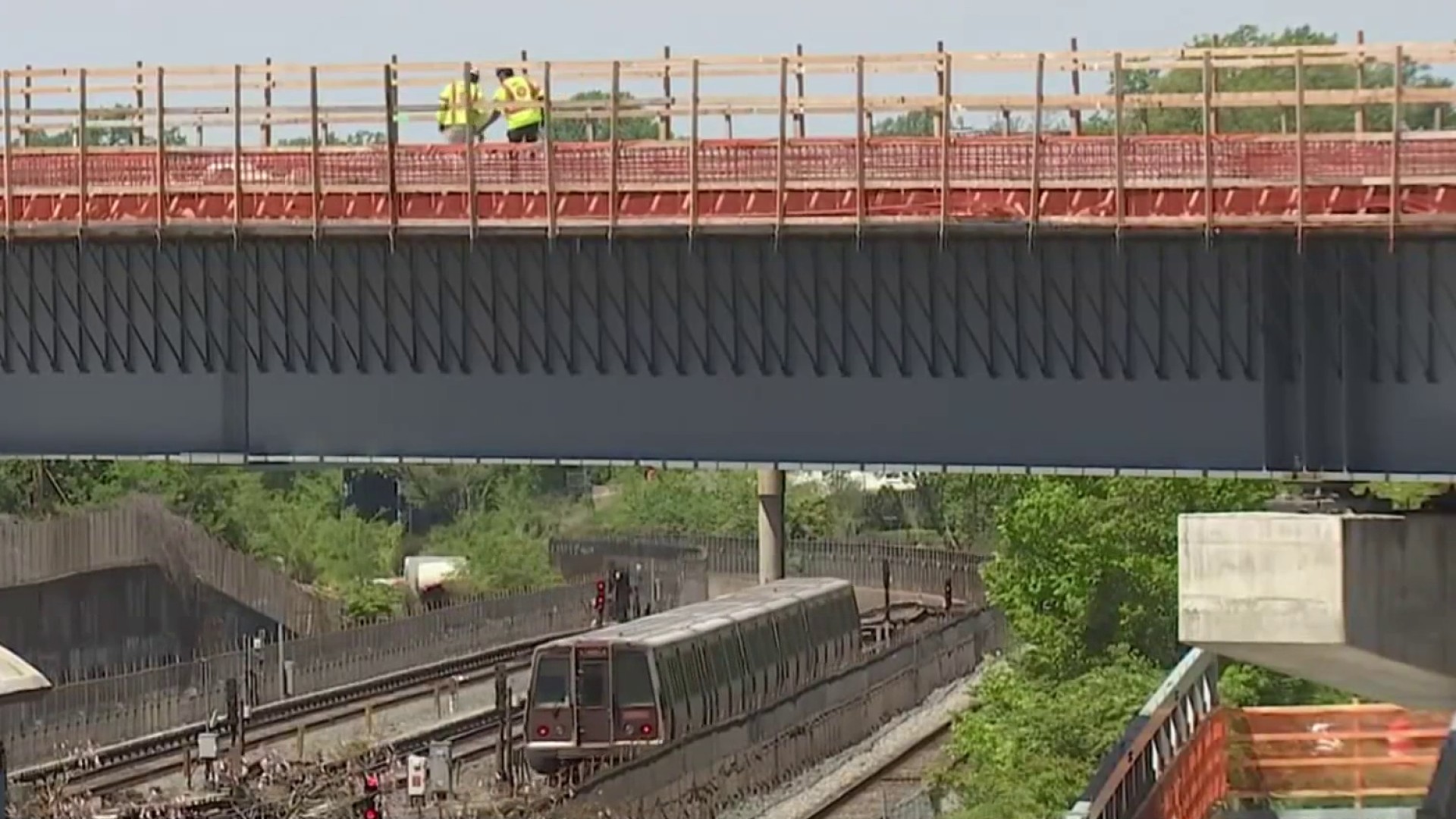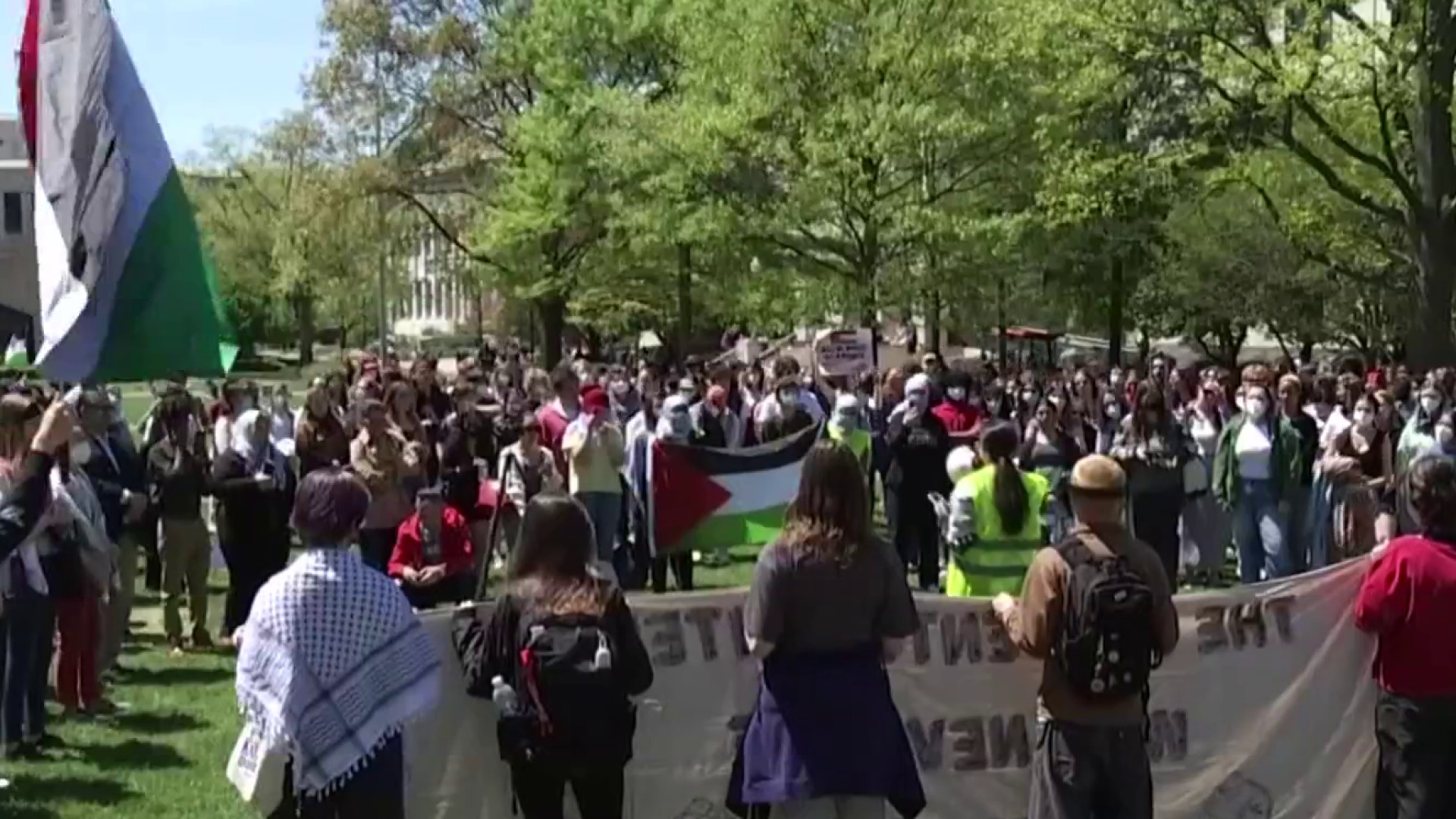The deals happen in a heartbeat.
A man, walking fast, slaps cash into another’s hand – it looks like a handshake – and he walks away with what looks like a carton of cigarettes.
On another street corner, people routinely pause in front of a woman sitting in the shadows of a homeless shelter. As they suddenly walk off, she tucks a few dollars into her shirt each time.
Just down the street, a quick flash of a shiny foil packet going into another man’s pocket is the only hint, police say, that you’re watching D.C.’s open air drug market -- a place that became even more dangerous this summer because of synthetic drugs, detectives say.
In exclusive interviews with the News4 I-Team, the men and women on the forefront of D.C.'s new drug war are talking about how we ended up here, watching these lightning-fast sales on D.C. street corners, when just five years ago the drugs could be found in convenience stores throughout the city.
"It was just blatant, out in the open,” the Metropolitan Police Department’s Acting Lt. Andrew Struhar told the I-Team in a rare television interview. “The brands would be advertised, put up in the windows and you could point to the brand you wanted."
Struhar is the man in charge of taking down drug deals for MPD. He said his team started cracking down on these stores in 2013 after the federal government outlawed the first batch of synthetic drugs.
Local
Washington, D.C., Maryland and Virginia local news, events and information
Natalie Ludaway of the D.C. Attorney General’s Office explained, “Frankly some them just don't know what they have in their stores, the dangers."
As the district’s Chief Deputy Attorney General, Ludaway said they tried to educate store owners, warning them to stop selling the packets containing dried leaves laced with manufactured chemicals.
But some stores decided to keep selling and began concealing their illegal stashes in hidden trap doors in the floor and other creative hiding places.
"We'd find it in Slim Jim boxes, candy boxes under the counter," Struhar said. "We would find them in purses, behind water heaters, in filing cabinets in the back office, in unmarked boxes underneath other boxes."
That’s when they told stores, “’OK, fine, we’ve educated you. You know better,’” Ludaway said. “Then we go about trying to shut places down.”
The D.C. Council beefed up the city's nuisance law, she said, allowing them to levy heavy fines and shut down stores like Aida's Electronics in Bloomingdale in July and execute an emergency closure order on Smiley's on Martin Luther King Jr. Avenue just last month.
“It allows us to move forward with a case without having to first prove that a substance is a, quote, 'illegal synthetic drug,'" Ludaway said.
But so far, no one has gone to prison.
To bring a criminal case, acting U.S. Attorney Vincent Cohen said he needs to prove the packets contain illicit chemicals specifically scheduled by the government as an illegal substance, which requires complicated testing.
"We are finding a number of these synthetic cannabinoids that we've confiscated” do contain illegal chemicals, Cohen said. “Those are the cases that we're bringing forward."
He continued, "We will lock you up for distribution and will lock you up also with possession with intent to distribute.”
He said he just received the first batch of test results from the Drug Enforcement Administration’s forensic chemists, which will allow him to try D.C.’s first round of criminal cases this winter.
Those cases include:
- An employee at a Georgia Avenue store in Northwest, accused of hiding Bizarro and Scooby Snax inside a broken ATM machine. The store is no longer operating.
- A clerk in a store on Benning Road in Northeast, where detectives seized more than 2,300 packs of K-2, Hooka Blast and other brand names from inside the store's safe. The store did not respond to our request for comment on this story.
- Two men arrested after last month’s seizure of more than $2 million worth of Bizarro packets intercepted by Struhar and his team from a storage facility in northwest D.C.
Stuhar said that, by far, has been their largest seizure. "It was truly a huge amount."
He said his team is focusing its efforts on shutting down these big suppliers before they get to the stores. "The store owners are being extremely careful now,” he explained. “Making undercover buys used to be a very simple process, was not challenging. Now we'll go to 17, 18, 20 stores to buy, and the store owners are very upfront, saying, ’We'll lose our license, we can go to jail.’"
Instead, dealers are abandoning the packets and hand-rolling the leaves to sell as individual cigarettes or blunts, Struhar said.
Within just a few hours, the I-Team’s undercover cameras caught dozens of suspicious deals.
In between illegal pill sales and users sniffing white powder, the I-Team saw cash trading hands for “singles.”
MPD said they’ve found almost everyone buying and selling synthetic drugs in in the district appears to be African-American, noting synthetics are hitting the city’s black community particularly hard. DEA and other law enforcement agencies said outside of the district, they see users and sellers from every demographic, ranging in age from their early teens into their 70s.
But Struhar said these new, single cigarette sales make it harder than ever for D.C. police to tell if they're witnessing contraband tobacco sales -- marijuana -- or synthetic deals.
While many city leaders applaud MPD’s efforts to get the packets out of the stores, effectively eliminating their access to children and teenagers, Struhar said for MPD, these street-level deals are "kind of a worst case scenario for us."
Even though MPD arrested more than 105 people for street-level synthetic sales since June, Struhar explained, “The problem is that person is out back on the street the next day and you're not systemically addressing the problem, so we've tried to really address the dealers more than just the buyers."
He wants you to know the police are watching, hoping these singles will lead them to the next big bust.
"It's a continuing battle,” he said, “and we just have to adapt to what is going on right now."



